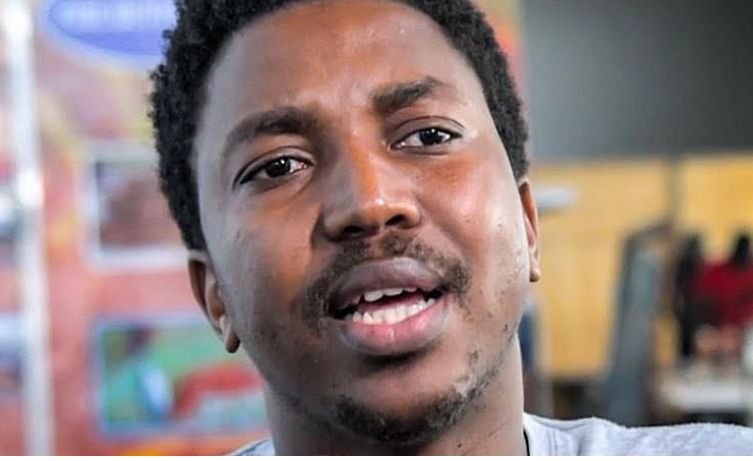A REGIONAL tribunal yesterday finally started hearing the applications of 78 Zimbabwean farmers after two delays.
The farmers are appealing to the court to prevent the Zimbabwean government from expropriating their farms. The landmark case, which was filed last October and postponed twice since then, has drawn international attention.Crowds who came to follow the proceedings in the Supreme Court in Windhoek yesterday were shocked to see one of the affected farmers, 38-year-old Ben Freeth, in a wheelchair with bad bruises still visible around his eyes.He and his in-laws, 76-year-old Michael Campbell and his 66-year-old wife Angela, were assaulted on their farm Mount Carmel last month and severely beaten.Campbell, who is the first applicant in the appeal case, is still so unwell, suffering four broken ribs, that he could not travel to Namibia to attend the proceedings.”I had a brain operation in the meantime to remove a blood clot and I feel somewhat better,” Freeth told The Namibian yesterday.”The vision of my right eye is still not good,” he added.Freeth nearly lost his eye during the attack by Zanu-PF thugs who forced Freeth and the Campbells to sign a paper stating that they would withdraw their appeal to the SADC tribunal.Yesterday South African lawyer Jeffrey Gauntlett, representing the Zimbabwean farmers, told the five judges of the tribunal that the expropriation was unconstitutional, discriminated against white farmers and contravened the SADC Treaty, which had been signed by Zimbabwe’s President Robert Mugabe.”The treaty says that SADC member states shall not discriminate against any person on grounds of gender, religion, political views, race, ethnic origin, culture, ill-health or disability,” Gauntlett quoted from the treaty.”My clients are not against land reform if done according to the law, but what the Zimbabwean government did was to simply publish lists of the names of farms and took the farms away the next day, giving them to government officials, not even to deserving black farmers,” Gauntlett argued.”Not a single farm was taken because it was badly farmed, or on other rational grounds.This case could be tested in any international human rights court in the European Union,” according to Gauntlett.He informed the five judges that since the hearing last May (which was postponed at the request of the Zimbabwean government law team), some of the applicants had been assaulted.”One of them is here today in a wheelchair,” Gauntlett concluded his two-hour argument.He further informed the bench that he would bring an urgent application today regarding the beatings of three farmers.Zimbabwe’s deputy attorney general Prince Machaya in the afternoon argued that the SADC Treaty was merely “a set of guidelines for member states”.This was countered by Gauntlett, who said: “They cannot massage language.To argue the Treaty is just a set of guidelines is cynical, morally bankrupt and insupportable.”Machaya told the bench that at independence in 1980, almost half of the fertile land in Zimbabwe was “in the hands of white settlers.”The land reform was necessary and “it was unavoidable that some white farmers were affected, but also 21 black farmers between 2000 and 2006, (who lost their farms)”, Machaya stated.”The intention was to obtain 8,3 million hectares and to build a class of black commercial farmers.”There was some resistance to the land reform, but to say the land reform was directed against one race is simply not true,” Machaya concluded.The hearing continues today.The landmark case, which was filed last October and postponed twice since then, has drawn international attention.Crowds who came to follow the proceedings in the Supreme Court in Windhoek yesterday were shocked to see one of the affected farmers, 38-year-old Ben Freeth, in a wheelchair with bad bruises still visible around his eyes.He and his in-laws, 76-year-old Michael Campbell and his 66-year-old wife Angela, were assaulted on their farm Mount Carmel last month and severely beaten.Campbell, who is the first applicant in the appeal case, is still so unwell, suffering four broken ribs, that he could not travel to Namibia to attend the proceedings.”I had a brain operation in the meantime to remove a blood clot and I feel somewhat better,” Freeth told The Namibian yesterday.”The vision of my right eye is still not good,” he added.Freeth nearly lost his eye during the attack by Zanu-PF thugs who forced Freeth and the Campbells to sign a paper stating that they would withdraw their appeal to the SADC tribunal.Yesterday South African lawyer Jeffrey Gauntlett, representing the Zimbabwean farmers, told the five judges of the tribunal that the expropriation was unconstitutional, discriminated against white farmers and contravened the SADC Treaty, which had been signed by Zimbabwe’s President Robert Mugabe.”The treaty says that SADC member states shall not discriminate against any person on grounds of gender, religion, political views, race, ethnic origin, culture, ill-health or disability,” Gauntlett quoted from the treaty.”My clients are not against land reform if done according to the law, but what the Zimbabwean government did was to simply publish lists of the names of farms and took the farms away the next day, giving them to government officials, not even to deserving black farmers,” Gauntlett argued.”Not a single farm was taken because it was badly farmed, or on other rational grounds.This case could be tested in any international human rights court in the European Union,” according to Gauntlett.He informed the five judges that since the hearing last May (which was postponed at the request of the Zimbabwean government law team), some of the applicants had been assaulted.”One of them is here today in a wheelchair,” Gauntlett concluded his two-hour argument.He further informed the bench that he would bring an urgent application today regarding the beatings of three farmers.Zimbabwe’s deputy attorney general Prince Machaya in the afternoon argued that the SADC Treaty was merely “a set of guidelines for member states”.This was countered by Gauntlett, who said: “They cannot massage language.To argue the Treaty is just a set of guidelines is cynical, morally bankrupt and insupportable.”Machaya told the bench that at independence in 1980, almost half of the fertile land in Zimbabwe was “in the hands of white settlers.”The land reform was necessary and “it was unavoidable that some white farmers were affected, but also 21 black farmers between 2000 and 2006, (who lost their farms)”, Machaya stated.”The intention was to obtain 8,3 million hectares and to build a class of black commercial farmers.”There was some resistance to the land reform, but to say the land reform was directed against one race is simply not true,” Machaya concluded.The hearing continues today.
Stay informed with The Namibian – your source for credible journalism. Get in-depth reporting and opinions for
only N$85 a month. Invest in journalism, invest in democracy –
Subscribe Now!










